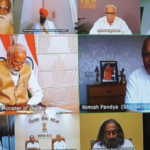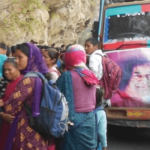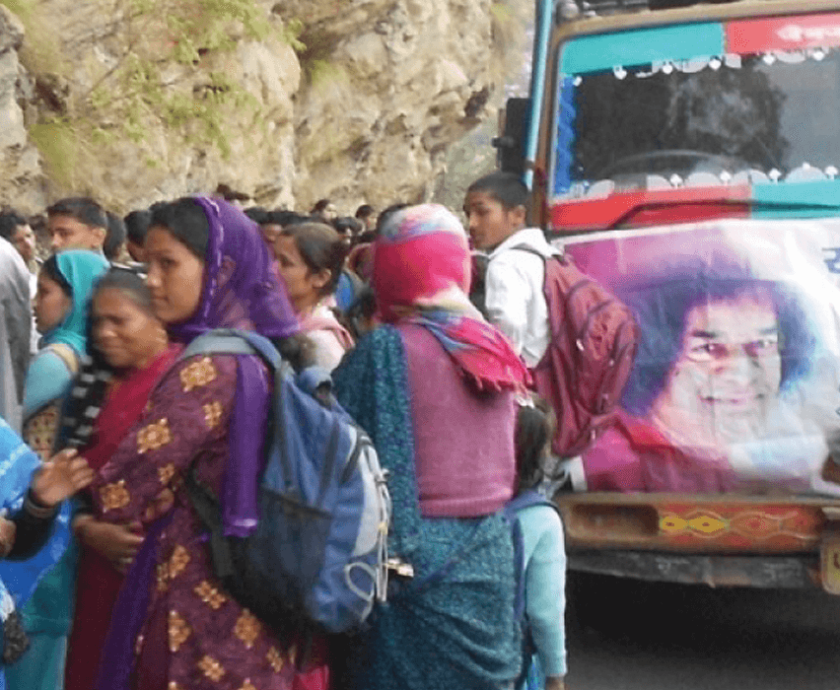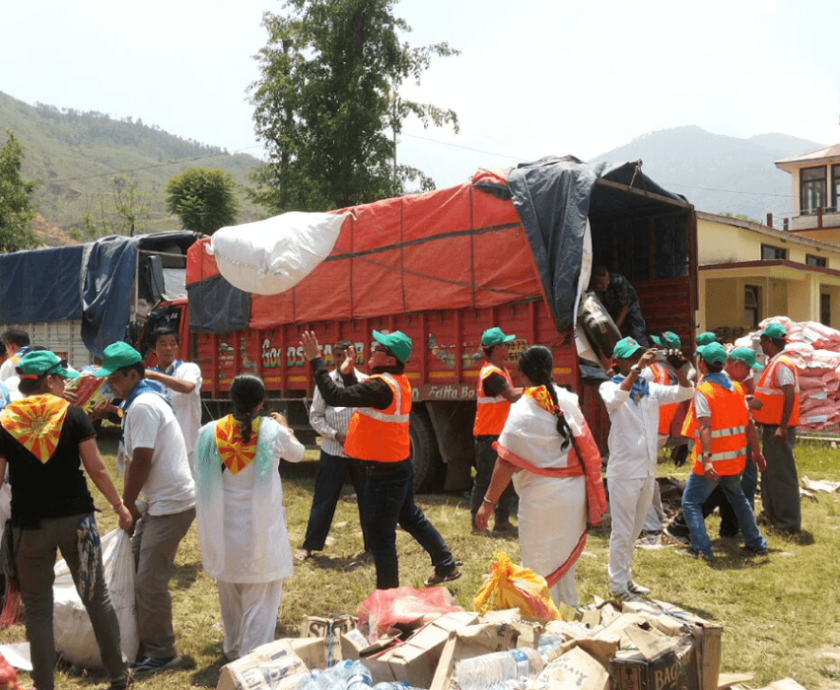DISASTER MANAGEMENT
On 3rd May 2019, the costal part of Odisha experienced nature’s fury in the form of a devastating
cyclonic storm ‘Fani’, which made its land fall at more than 200 kms/hour near the coastal town of
Puri. The four-hour long storm stranded the people of Puri, Bhubaneshwar and Cuttack to ground
zero and left them with tearful eyes and little hope to rehabilitate themselves. More than 10 lakh
people were impacted due to lack of electricity, food, and communication network. Fani came like
any other cyclone that makes its annual visit to the coastal areas of India, but the enormity of its catastrophic
effect was something which can be explained only by the ones who have experienced it.
SSSSO, Odisha, with its Seva Dais and the Disaster Management Team was well prepared for the
pre-informed cyclone and tackled the situation with sincerity and efficiency. They set out in batches
to different parts of the affected areas to survey the ground situation. Bhubaneswar acted as the
headquarters of the State SSSSO and functioned as the nodal center for all preparations. Seva Dal
volunteers worked without rest and sleep to pack the relief materials. From 5th May,
the volunteers
reached more than 5,000 households through different routes, and supplied dry foods and
some basic utilities like flashlights, candles, matchboxes, mosquito repellents and, safe drinking
water to sustain a family for a week.
Due to the impact of the cyclone, the people of Bhubaneswar,
the capital city of Odisha, lacked electricity and water. The Seva Dais reached out to the people
of the city with generators to pump water to the overhead tanks. Even animals and household pets
were taken care of, with volunteers distributing food for them in the affected areas.
More than 10,000 affected villagers and slum dwellers in Puri District were served cooked food, wherever cooking fadlities were not available. The food was prepared and served at their shelters by the Seva Dais with utmost love and care. Further, 10,000 more were served by supplying them with adequate rations. Around 2,600 safe drinking water jars were provided to the households.
The calamity had also left the villages and their surrounding water sources polluted and unhealthy. The Seva Dal volunteers went in batches taking with them adequate quantity of bleaching powder, other sanitary items, and cleaning equipment including automated wood cutters to clear the logs from the blocked roads.
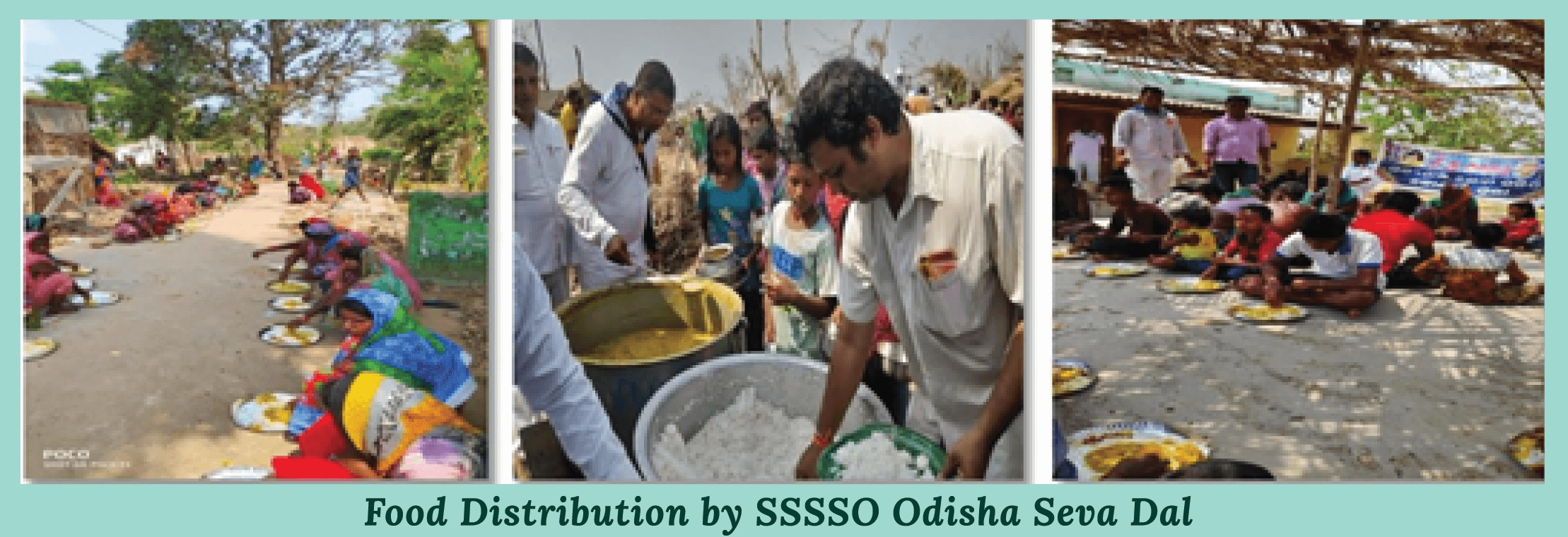
The unhygienic conditions in the aftermath of the cyclone had brought about a fear of an epidemic
outbreak in the affected areas. Keeping this in view, a team consisting of more than 20 doctors,
para-medica Is and Seva Dais with adequate medicines organised medical camps in the villages and
provided medical amenities to the inhabitants.
About 2,000 patients benefited from the medical
camps.







































